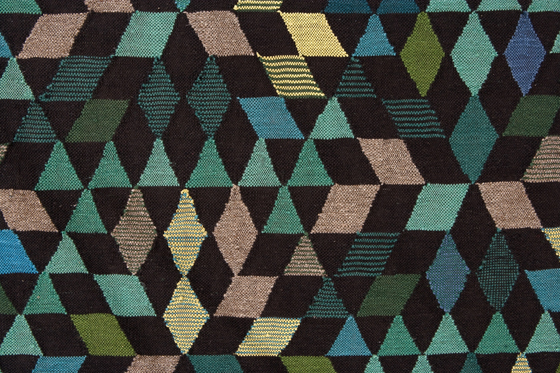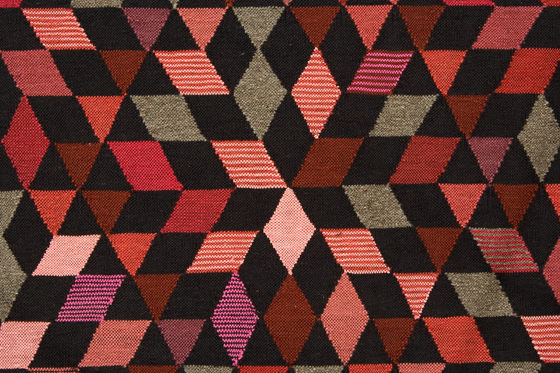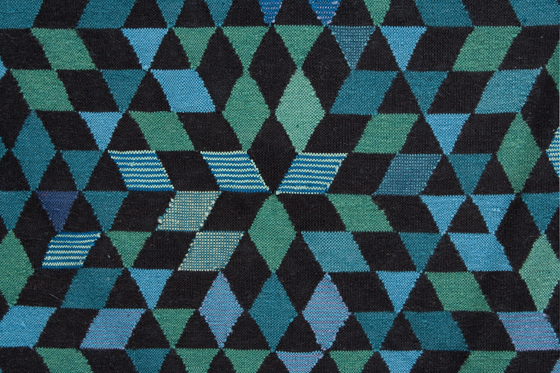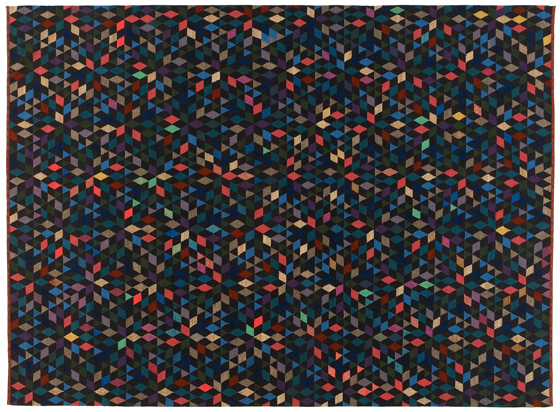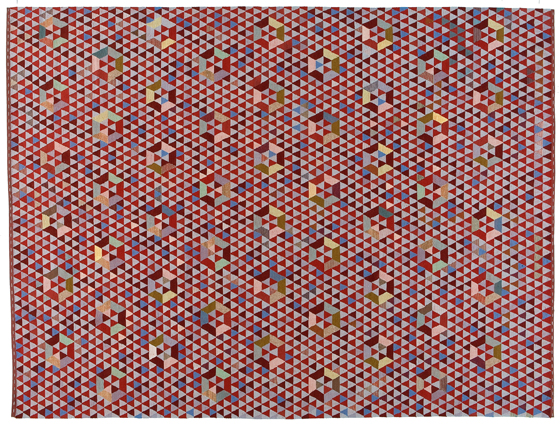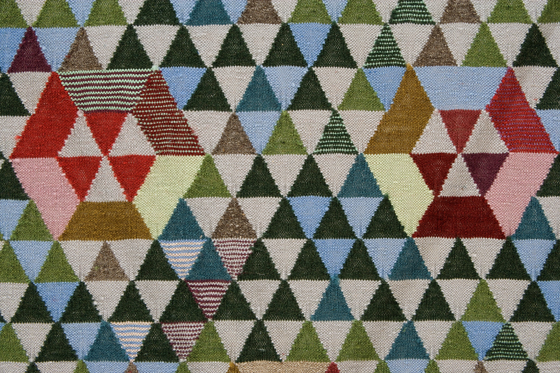The TRIANGLES Collection, designed by Bertjan Pot, broadens the contemporary offerings from the legendary rug company, Golran
Texto por GOLRAN 1898
Milano, Italia
10.01.14
The collection consists of three different models of carpets made with the KILIM technique; some of which are available in an array of colors; all of which have been created with a new spirit incorporating ancient techniques into modern styles.,The whole collection is based on the geometric form of
The collection consists of three different models of carpets made with the KILIM technique; some of which are available in an array of colors; all of which have been created with a new spirit incorporating ancient techniques into modern styles.
The line innovates upon the traditional carpet market, maintaining excellent quality in its pieces and creating them from the most precious materials: fine wools, silks, and cactus fibers.
All styles start with an investigation into the weaving technique of the kilim in order to then emphasize the inherent diagonal lines and horizontal features.
The whole collection is based on the geometric form of the triangle, reiterated to form a grid of different patterns, from which diamond and hexagonal shapes emerge.
The color play pairs up slightly contrasting tones, creating woven kaleidoscopic rugs. This color harmony and pattern research perfectly links the historical background to this new contemporary context.
To emphasize the geometries and plays of color, the designer has created poufs in different forms to be combined and contrasted with a carpet for a complete look corresponding to certain expressions of contemporary art.
Triangles, presented in prototype form during the Salone del Mobile 2013, is now finally available for the international market in all of its variations including:
“Diamondmedallion blue-green”
“Diamond strawberry”
“Diamond applegreen”
“Diamond black”
“Trianglehex sweet pink”
“Trianglehex sweet green”
Bertjan Pot, the Dutch designer born in 1975, has focused on the creation of furniture and objects since the beginning of his career, incorporating technological research of materials, patterns, color palettes, and the textures of fabrics. Material research is the general starting point for almost every project. Technical research and creativity are the elements that break the boundaries of industrial production, as shown with his self-produced projects. In addition to these, he has collaborated with a large number of companies and institutions such as Moooi, Arco, Goods, Montis, Feld, Gelderland, Established & Sons, Alturo Alvarez, Richard Lampert, Domestic, Moustache, Museum Boijmans van Beuningen, and the AUDAX Textielmuseum Tilburg. The designer's work was also the subject of a solo exhibit, held at the Villa Noailles, Hyères, during the most recent edition of Design Parade. The exhibition featured, among other pieces, the Triangles collection created for Golran.
Golran
The company, family-run and now driven by the momentum of the fourth generation, combines the respect for classic family traditions and Persian culture with a passion for innovation. It became instantly recognizable in the field thanks to collaborations with the most important international design brands and as the ideal production partner for brands and companies from diverse sectors: Fendi, Roberto Cavalli, MaxMara, Palazzina Grassi in Venice designed by Philippe Starck, Vieques Island designed by Patricia Urquiola, Ceresio 7 Restaurant by Dsquared2 in Milan, and many others.

